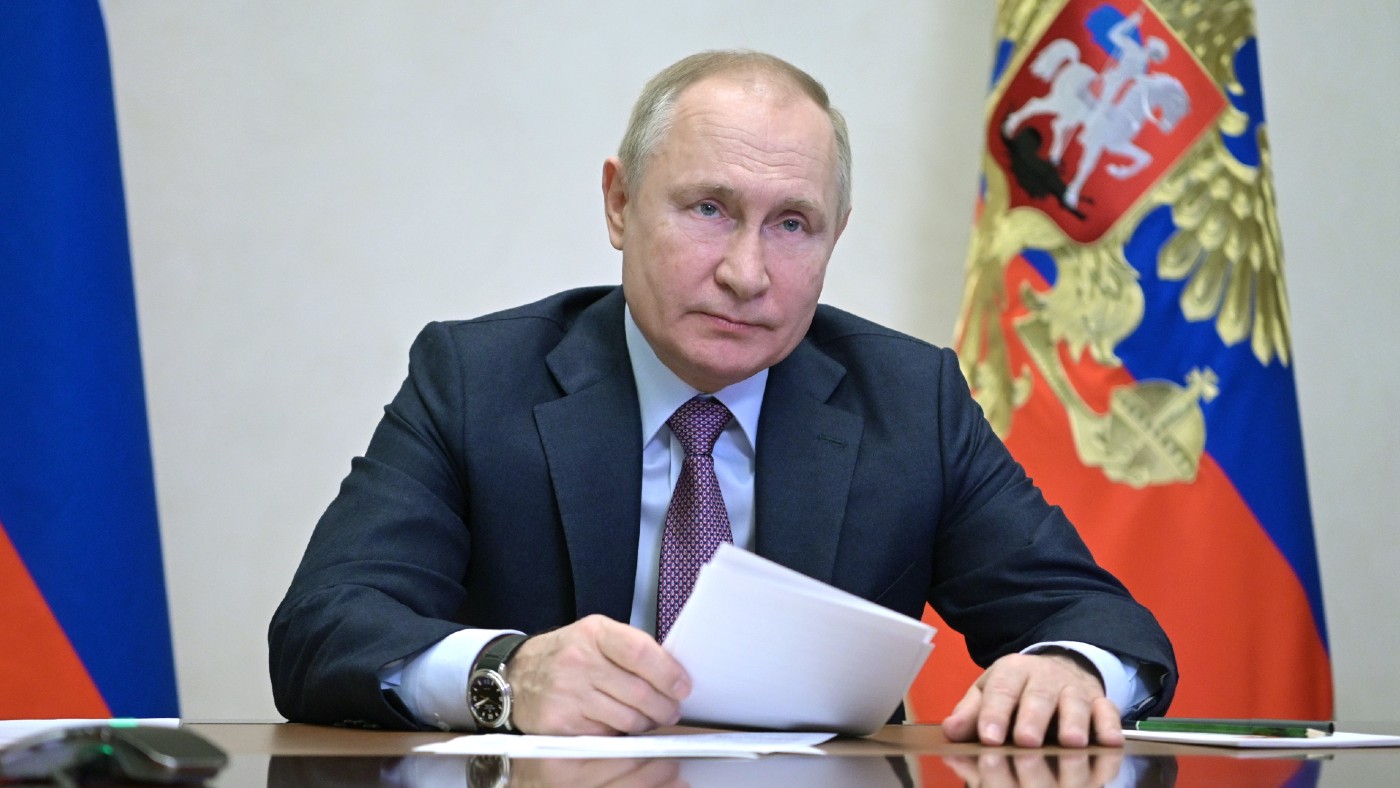Can Vladimir Putin be toppled?
Russia has become what political scientists call ‘a personalist dictatorship’

A free daily email with the biggest news stories of the day – and the best features from TheWeek.com
You are now subscribed
Your newsletter sign-up was successful
Vladimir Putin may have led his country into a costly and possibly unwinnable war, said Mark Galeotti in The Times – but “he cannot walk this back”. The war is, for him, about Russia’s status as a great power, and his own status as “a great ruler”. He won’t resign: “in a system with no meaningful rule of law, he would be entrusting his fortune, life and fate to a successor to whom he had also just left a monstrous policy disaster”. And it’s unlikely that anyone can make him go.
Impeaching Russia’s president requires a two-thirds vote in both chambers of a parliament “packed” with his political appointees. “Perhaps the only institution that could oust Putin would be the army”, but it is very carefully watched by the Federal Security Service, the FSB. Might the FSB itself turn on the president? That could take “months or years”. For now, as one Russian entrepreneur told me, “We’ll all have to wait for Putin to die. Only the Grim Reaper can save us.”
When the war started, analysts were still talking about “the Putin regime”, said Ben Judah on Slate. But it has become clear that in the Kremlin there is no longer a “regime” at all – in the sense of “a system of government where multiple figures can affect and feed into decision-making, from security chiefs to billionaires”. Instead, Russia has become what political scientists call “a personalist dictatorship”. “The whims of one man, and one man only, determine policy.”
The Week
Escape your echo chamber. Get the facts behind the news, plus analysis from multiple perspectives.

Sign up for The Week's Free Newsletters
From our morning news briefing to a weekly Good News Newsletter, get the best of The Week delivered directly to your inbox.
From our morning news briefing to a weekly Good News Newsletter, get the best of The Week delivered directly to your inbox.
Putin certainly seems isolated from his advisers, said Stephen Fortescue on The Conversation. At the meeting of his security council before the invasion, some “expressed, very carefully, their reservations. It took humiliating bullying to get them all onside.” It has been reported that even his right-hand man, the defence minister Sergei Shoigu, “looked shocked when Putin ordered him to place Russia’s nuclear forces on alert”.
But now “the elites have to go all the way with him in Ukraine”, said Andrei Kolesnikov in Foreign Affairs – “or go to jail”. And there’s no way out, because of sanctions and travel bans. In Russian, there is a proverb for this situation: “Where do we go from the submarine?” The whole ruling class is “surrounded by deep water and no one can leave the boat”.
A free daily email with the biggest news stories of the day – and the best features from TheWeek.com